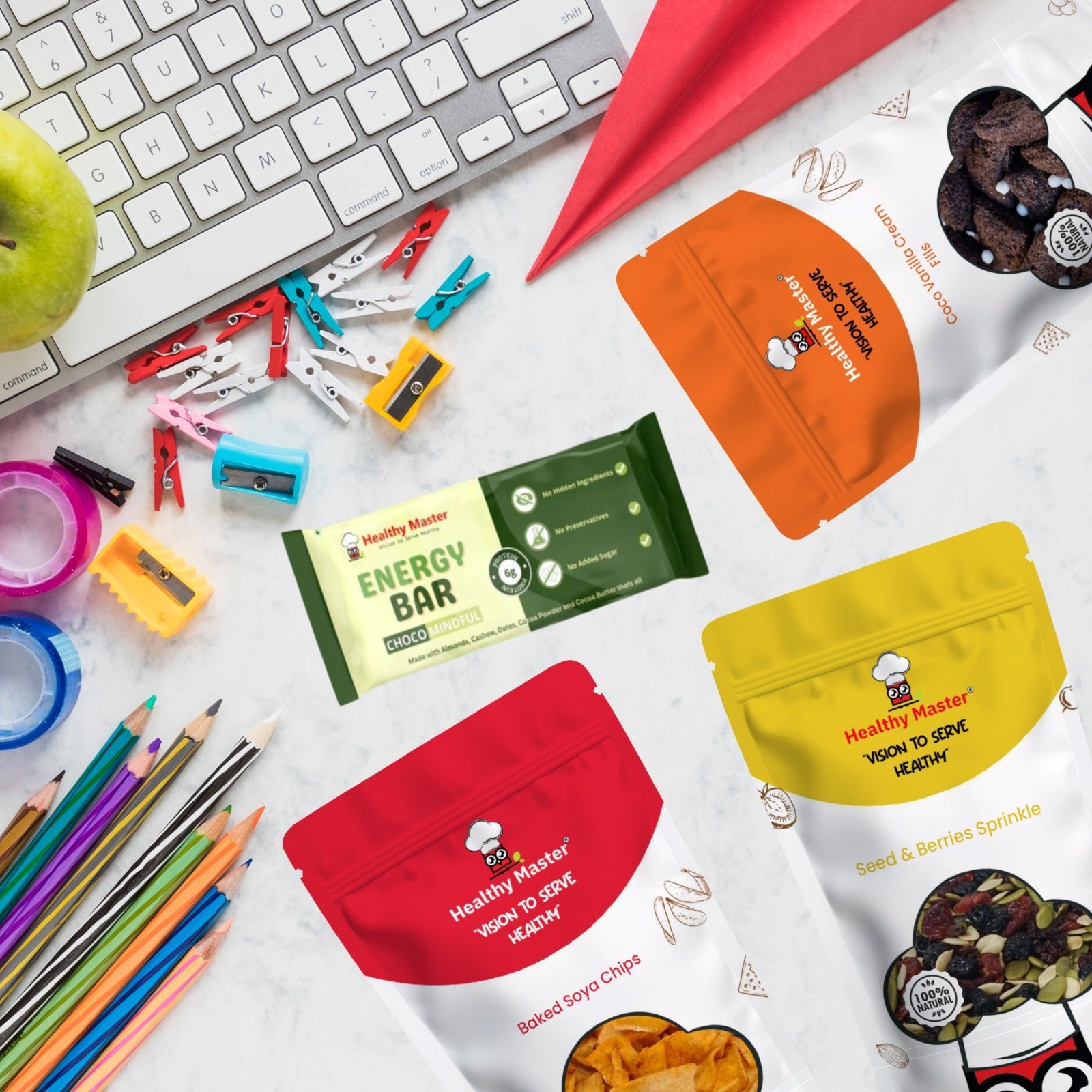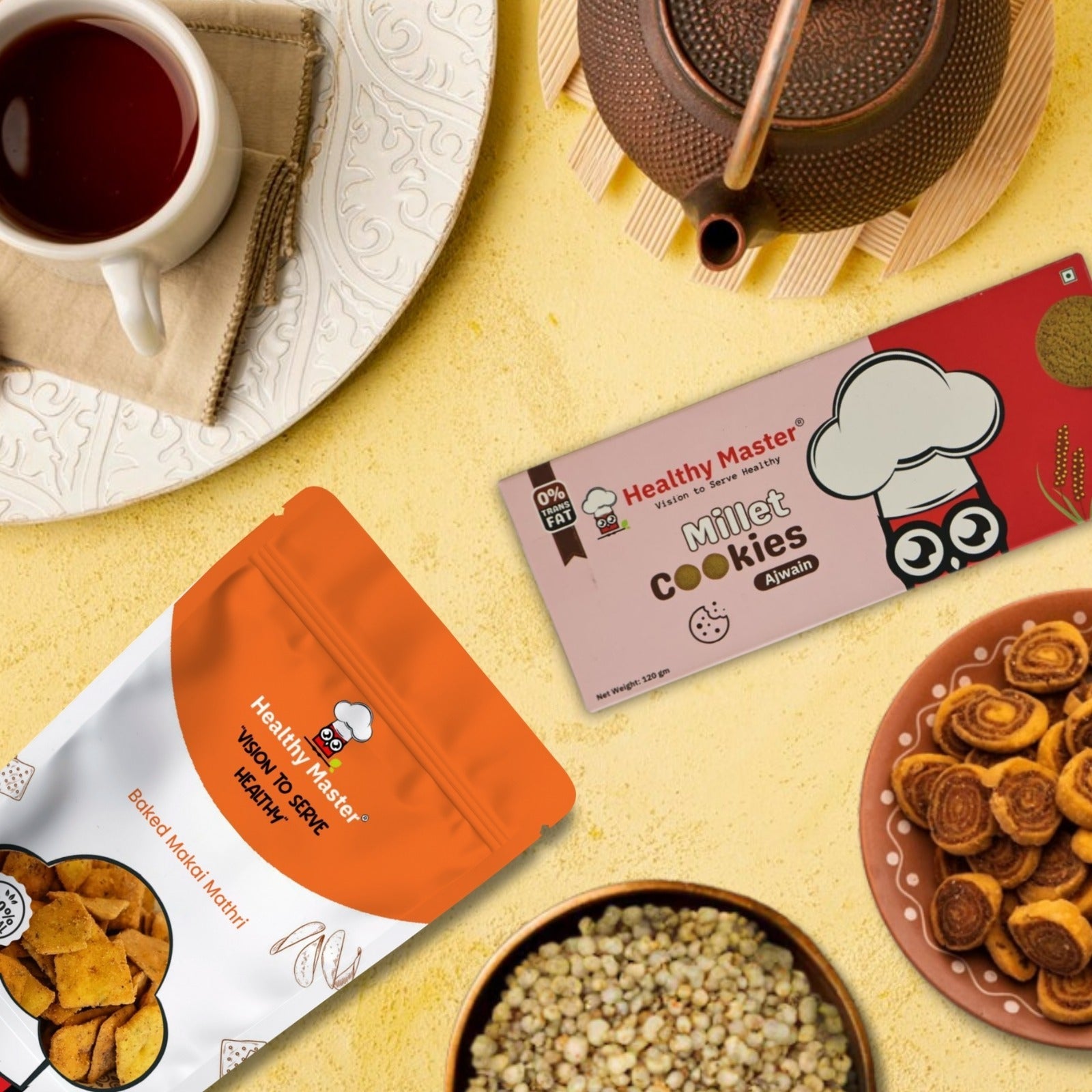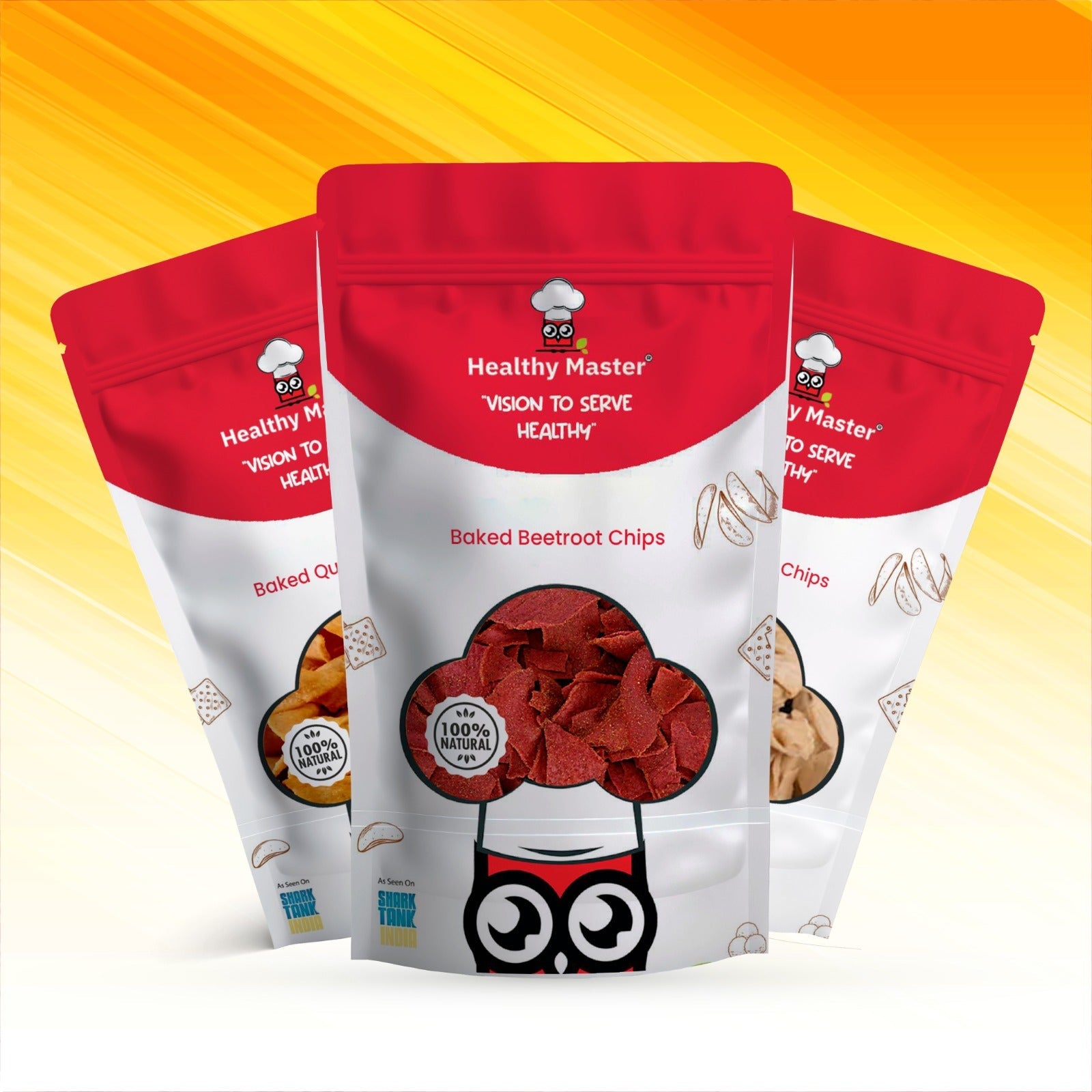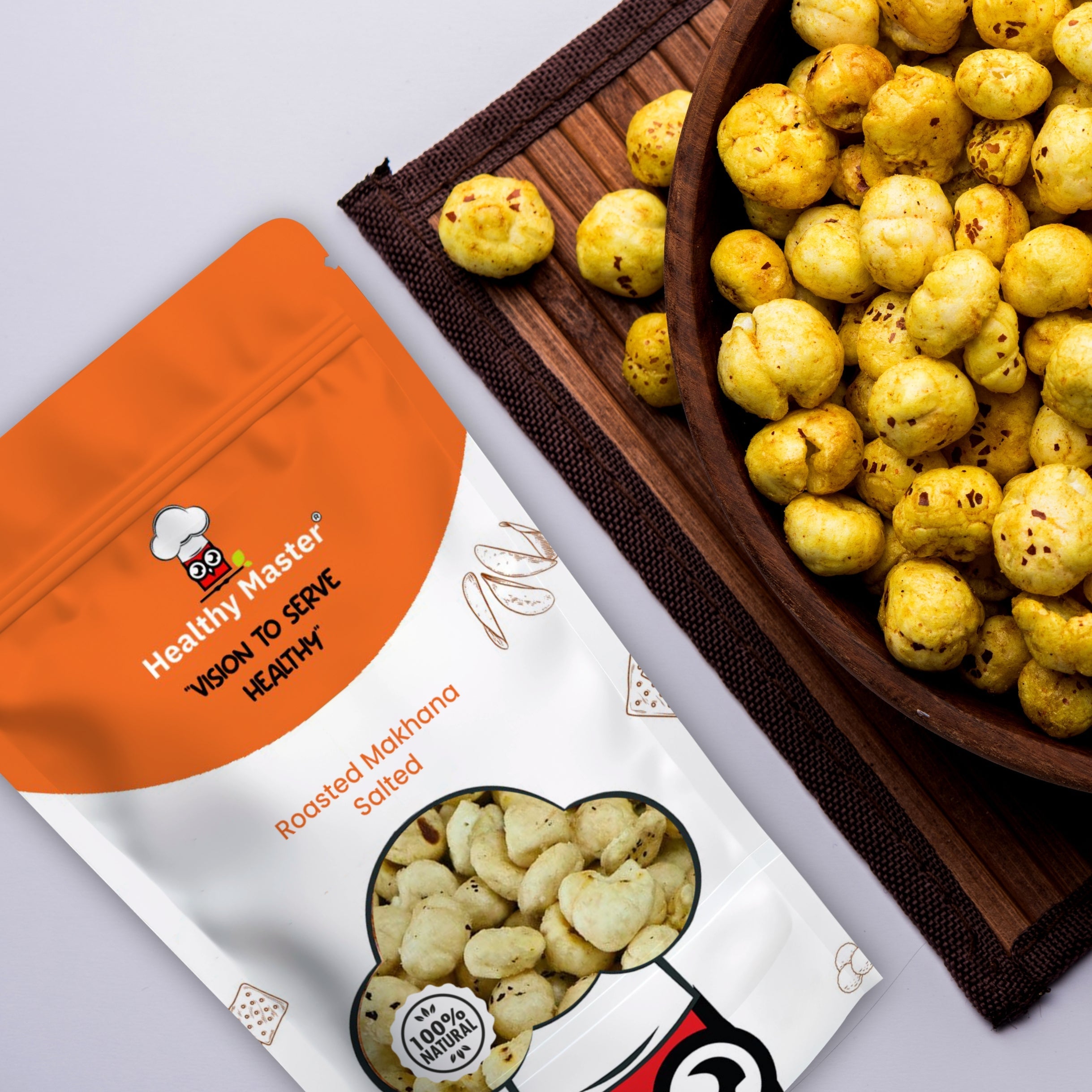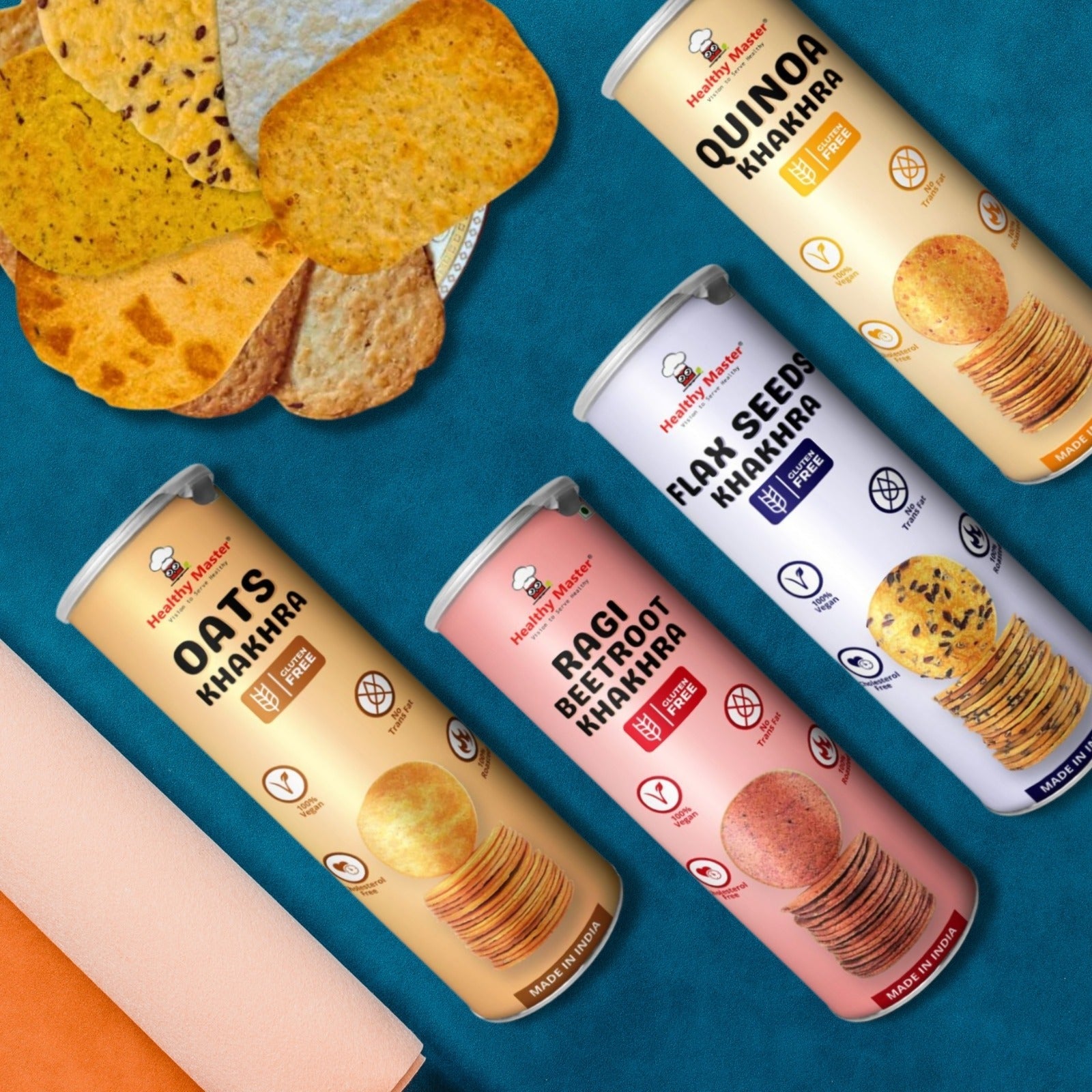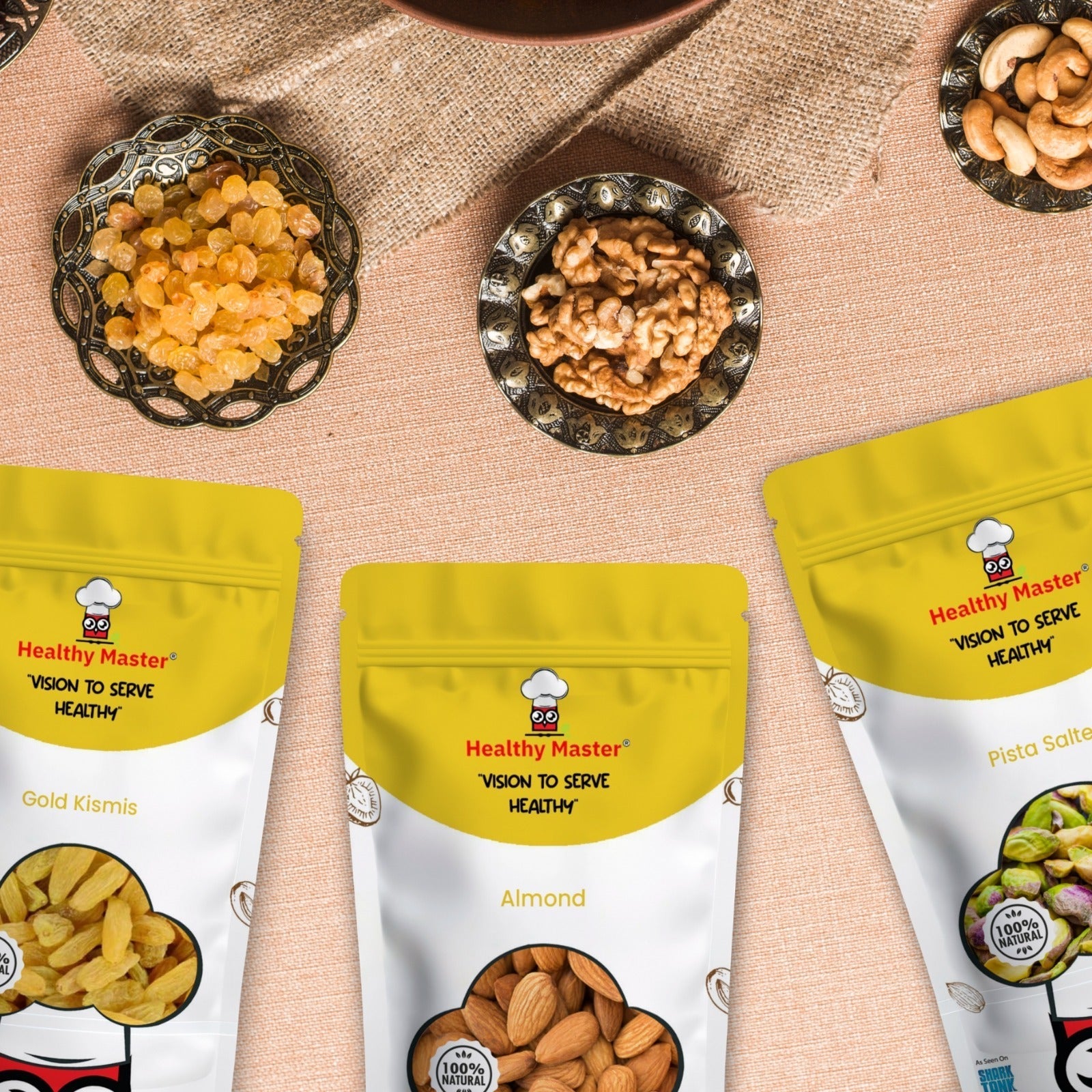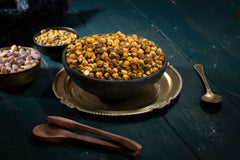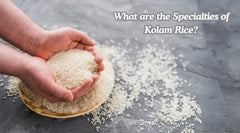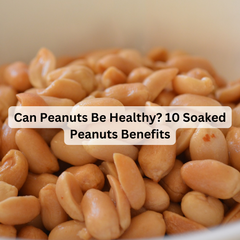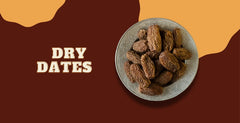We've all considered purchasing a protein bar for a GYM session with the thought of it being healthy, right? Most of us have!
But ever wondered if it does measure up to a banana and peanut butter or a scoop of trail mix? In the age-old debate of Protein Bars vs. Natural Snacks, the healthier option is not always cut and dry.
Whether you're looking to lose weight, power start your workout, or just snack wisely, what you put in your body counts. So let's sort out the protein bars vs. natural snacks debate and see what really is best for you and your body, with no fluff and all the facts.
What Are Protein Bars?
Protein bars or energy bars are bite-sized, convenient snacks made to provide an enormous amount of protein and instant energy, usually between 10 to 30 grams per serving. They're an on-the-go snack for fitness enthusiasts, working professionals, and anyone seeking an easy energy boost.
Some of the best protein bars walk the line between being delicious and healthy, while others are full-on sugar bombs, high-calorie abominations, and ultra-processed. (Guilty as charged, chocolate fudge cookie dough surprise.) You can try Healthy Master’s best protein bars, our bars give your body the right amount of energy with authentic and nutrient-packed in it.
What Are Natural Snacks?
The best natural snacks are whole food-based snacks that are minimally processed, artificial ingredient-free, and nutrient-dense in their natural state. Consider:
-
Roasted chickpeas
-
Apple slices with almond butter
-
Unsalted mixed nuts
-
Greek yogurt with honey
-
Fresh fruit, seeds, or veggie sticks
The best natural snacks usually create a balanced mix of carbs, fiber, healthy fat, and natural protein. They're frequently the snack of choice for the healthy eaters who enjoy genuine food rather than lab-created and processed imitations.
And to be very honest, sometimes all your body is craving is something plain and healthy, not something that has a degree in nutrition attached to it to figure out.
Nutritional Comparison: Protein Bars vs. Natural Snacks
Let’s do the comparison between protein bars vs. natural snacks and their key nutritional fronts:
|
Criteria |
Protein Bars |
Natural Snacks |
|
Protein |
10–30g (isolated sources) |
3–10g (natural sources) |
|
Calories |
180–400+ kcal |
100–250 kcal |
|
Sugar |
1–25g (can include artificial sweeteners) |
0–15g (from natural sources like fruit) |
|
Fiber |
Often low unless added |
Naturally higher (seeds, nuts, fruits) |
|
Additives |
Common |
Rare or none |
|
Satiety |
Moderate – depends on ingredients |
Higher fiber and healthy fats |
So while protein bars might win on protein content alone, natural snacks often bring better balance, fewer chemicals, and long-term satiety.
Benefits of Eating Protein Bars
There's a reason why these bars dominate grocery aisles: they're convenient, easy, and versatile. Here's why they win:
-
High protein levels aid in muscle recovery and fullness
-
Mess-free and portable for travel, work, or post-workout fueling
-
Tended to be fortified with vitamins, minerals, and fiber
-
May be used as a meal replacement when necessary
Need the best protein bars? Opt for ones with:
-
≤ 8g sugar
-
≥ 10g protein
-
Actual food ingredients such as oats, roasted seeds, or nut butters
-
No added preservatives or sweeteners
Protein bars are also very handy to have when you're traveling, hiking long distances, or have one of those days when you forget to prepare lunch and want something to hold you over. Just keep in mind – all protein bars are not equal.
Drawbacks of Protein Bars You Should Know
Though protein bars are hyped so much, they aren’t perfect, and you won't get a perfect one if you don't buy it from a good company like Healthy Master because they’re not all created equal. Here’s what to watch out for:
-
Hidden sugars: Some bars have as much sugar as candy
-
Artificial additives: Think preservatives, flavor enhancers, sugar alcohols
-
Low-quality protein: Isolates may be processed with chemical solvents
-
Digestive issues: Sugar alcohols like maltitol can cause bloating
You know what’s another concern? Overconsumption! Yes, you heard it right. If you find yourself eating on two or more bars a day, you might be skipping real meals. This can create nutritional imbalances in the long run.
Health Benefits of Natural Snacks
Whole foods, meanwhile, have passed the test of time and science. Here's why natural snacks excel:
-
High in fiber to help with digestion and satiety
-
Loaded with important nutrients, such as magnesium, potassium, and antioxidants
-
Lower glycemic effect, promoting improved blood sugar control
-
No artificial ingredients or synthetic preservatives
-
Naturally anti-inflammatory, particularly when high in polyphenols (such as berries or seeds)
Natural snacks are also versatile and customizable. Want sweet? Go for dates stuffed with nuts. Craving crunch? Try roasted makhana or baked kale chips.
Parents, if you’re building lunchboxes, best natural snacks like Healthy Master’s Ragi Chips or Roasted Seed Mixes offer wholesome nutrition without the artificial junk. And yes, kids do love them when flavored right!
Are Natural Snacks Always Better?
Great question, and here’s the nuanced answer: not always.
If you're on the go, require protein after exercise, or are recuperating from surgery or illness, a clean protein bar can be a handy nutritional aid. Particularly for athletes or individuals with limited diets, a well-selected protein bar can avoid energy crashes.
But when do you have access to real food? It's tough to top what nature has to offer. Optimal practice: Use protein bars with restraint and use natural snacks for your everyday munching.
Hidden Ingredients to Watch Out For in Protein Bars
Before you grab that mocha-crunch-flavored bar, read the label. The most common red flags are:
-
High fructose corn syrup
-
Sucralose, aspartame, maltitol (it can cause digestive issues)
-
Palm oil or hydrogenated oils
-
Excessive fillers (like cellulose gum or carrageenan)
-
Non-organic soy (is often genetically modified)
Also, be cautious of "net carbs". It’s a marketing tactic. Some brands subtract sugar alcohols and fiber to make their bars seem more keto-friendly than they are. Transparency matters.
When Should You Choose a Protein Bar?
Even with their faults, protein bars do have their use. They are particularly useful when:
-
You are traveling or backpacking and require non-perishable nourishment
-
After a workout, particularly when you are too busy to have a full meal
-
As an instant meal transition between meetings
-
When aiming to boost protein consumption on a vegetarian or vegan regimen
Consider them as convenience items, not everyday staples. Opt for brands that value clean ingredients and label transparency. Your metabolism and gut will appreciate it.
Best Natural Snack Alternatives to Packaged Protein Bars
Need better-for-you alternatives? Opt for these snack options instead:
-
Boiled eggs + fruit
-
Healthy Master’s trail mix made with almonds, sunflower seeds, and raisins
-
Chickpea chaat with cucumber, lemon, and spices
-
Nut butter on whole grain bread
-
Greek yogurt with chia seeds
-
Millet-based treats such as Healthy Master's Millet Pasta or Millet Noodles
-
Roasted seed mix (pumpkin, watermelon, sunflower)
These snacks blend protein, fiber, and healthy fats, no added preservatives needed.
Which Choice Helps with Weight Loss?
This is where it gets fascinating.
Natural snacks help with sustainable weight loss because they're less processed, more satiating, and less likely to stimulate cravings. The fiber and healthy fats found in seeds, fruits, and whole grains keep you full longer.
Protein bars, particularly low-sugar, high-protein ones, are beneficial in a controlled setting such as calorie counting or recovery after exercise.
But depending too much on protein bars? That can cause bloating, nutrient deficiencies, or even rebound hunger. Natural snacks take the cake for long-term weight loss.
Protein Bars vs. Natural Snacks - What’s the Healthier Choice for You?
So, Protein Bars vs. Natural Snacks, who wins?
If you’re in a pinch, a clean protein bar can be a helpful ally. But for daily snacking, nothing beats the power of real, whole food. Natural snacks are more nutrient-dense, satisfying, and supportive of your long-term health goals.
Craving something wholesome yet convenient?
Give Healthy Master's line of millet snacks, dried fruits, and guilt-free treats a try today. Your body (and taste buds) will appreciate it.
Frequently Asked Questions:
-
Can protein bars ever be healthy?
Yes, if they contain low sugar, high-quality protein, and real ingredients.
-
Are natural snacks always lower in calories?
Not always. Nuts, for example, are calorie-rich but provide more satiety and nutritional value.
-
Are protein bars healthy for weight loss?
They can be utilized prudently. Just be careful not to overconsume highly processed or sugary ones.
-
When is the best time to consume a protein bar?
After exercise, between meals, or when you're on the go and in a hurry.
-
Can I give protein bars to children?
Care should be exercised. Most bars are designed to meet adult requirements. Instead, opt for natural foods with clean ingredients for kids.
 Deal of the week : Trial Snack Box - 18 Wholesome Delights Just at ₹ 899.00
Deal of the week : Trial Snack Box - 18 Wholesome Delights Just at ₹ 899.00

